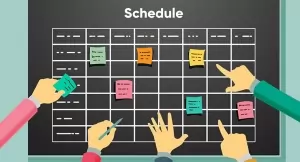After years of learning the craft, applying for your first teaching job feels like the realisation of a life-long ambition for some people.
The application process itself is the final step and one that you will not want to stumble on after the journey you have already taken.
Know your audience
At this point you are no longer writing to impress university tutors, pupils or even yourself. You are writing to the headteacher of the recruiting school and you will want to tailor your qualities accordingly.
Most headteachers would be far more willing to consider applications who had displayed some level of interest in the school itself, rather than just the specific teaching job on offer. If you have drafted a perfect cover letter that highlights all your achievements, carefully listing the recommendations you have amassed during your training, but then used a near identical copy for every application, you are not giving your employment prospects a fair chance.
Be particularly careful about using templates you find online. They will end up being counterproductive, with many heads admitting if they receive two applications with similar structures and an identical sentence or two, they dismiss both.
Know your objectives
The ultimate aim of your application is to get you a teaching job. However, if you break this down, you'll be able to construct a more tangible checklist of sub aims that you can build your application around.
First, you need to create enough of a good impression to get you to the interview stage. This is basically a process of checking that you include nothing that could discount you - including typos or flaws in your knowledge.
Next, you'll want to ensure the piece of paper the head and governors are reading is capable of influencing them to visualise you in the role they are advertising. To do this, closely match your experience to their specific details in the job description.
Finally, the application needs to not get you sacked after you get the job, so it must be honest. Sell yourself, don't lie about yourself.
Know the form
Government advises schools not to ask for CVs - although some may still do. Instead, your initial vacancy search is likely to be meet by an application form. Practice filling it out if this needs to be done by hand and get to know all sections of the form before you start writing anything at all.
Always list any achievements or experience in order of relevancy. This will ensure that your application is not bypassed even though you have the requisite skills.
Most forms are concluded by a statement (and if not you should include the following information in your covering letter).
Pay attention to the guidelines. If the school asks for two pages, it means somewhere between 1.5 and two pages, not a paragraph and type it unless it is specifically stated it should be handwritten. Build your response around the pointers given by the school, but use this as a final chance to emphasise your skills or address any qualities that you may have that you have been unable to document so far.
Be keen to get across why they need you, rather than vice-versa, although you will want to include your positive research about the school at this point.
End on a bright, but formal note and keep a copy of the form for yourself because hopefully, you'll be asked questions about it fairly soon.
5 ways to use film creatively in lessons
There is a lot of debate in the teaching profession at all stages of education about the advantages and disadvantages of using film in class. However, on the whole, most professionals would agree that when used right, it can be an effective tool.
At the heart of using film – which here encompasses movies, documentaries, moving images and, well, anything posted on channels like YouTube and Vimeo – successfully is creativity.
There are certainly times where pressing play and letting students watch a film for an hour or so is the most effective approach, one that fulfils objectives and engages students, but that is just the start. Endless possibilities are achievable – you just have to be open to it.
This guide outlines how to be more inventive in the classroom when it comes to film. When properly utilised, anything can be possible. Film has, after all, the ability to provoke, inspire, confound and intrigue swiftly.
Create the right environment
A lot of teachers lose time and interest by struggling to connect various devices to the right wires and even when everything is hooked up, chances are something will go wrong. There will be no sound or the clip will have been lost and, what do you know, the DVD has been left home.
So, plan ahead and ensure that when it comes to pressing play, everything is in place. Invest in surround sound, consider a projector to ramp up the visuals and dim the lights. The right environment can transform the viewing experience significantly, and, it is worth noting, the "the wrong environment" can make it just as unpleasant.
Stop and start
This is applicable to videos that are long but warrant being watched in full. Find ideal "pause moments" to break up the activity. While the piece may be interesting, holding the attention span of your students is always a challenge. As such, stop and start, with each break being filled by a Q&A session or activity related to the film.
Get interactive
The sophistication and accessibility of video-making software - a lot of it free - is providing more people than ever before, young and old, with a richer vocabulary and expertise of how to shoot films.
Use this to your advantage. Take a poll to find out what apps/programmes your pupils use and then figure out a way of making the most out of it. For example, Vine is hugely popular, free and easily shareable. Make sure any films shot are in compliance with your safeguarding policies.
Set up a film club
While video is ubiquitous and one of the dominant forms of communication and culture in the 21st century, cultivating a real interest in the medium adds the kind of depth that is otherwise impossible unless your students are already aficionados.
Depending on what it is you're doing or what subject you're teaching, you ideally want all your students to benefit from extra-curricular activities of this ilk, otherwise you may create certain imbalances.
Think outside the box
You don't have to experience film within the confines of a classroom – take it further and explore other venues and spaces in which videos can be shown or broadcast. It's about thinking beyond the box.
For example, consider hiring out a local cinema or showing films outside. Utilise portable technology and create an experience that is fluid across multiple devices. You want students to feel inspired by film, not distracted by it.
A teacher supply crisis ‘is unfolding’
Headteachers say they are struggling to recruit professionals to teach core subjects likes English, maths and science.
This is according to a new survey by the Association of School and College Leaders (ASCL), which noted that 44 per cent of school leaders have vacancies in English posts, 52 per cent in maths and 50 per cent in science.
Further compounding this shortage of teachers is a fall in the number of youngsters going to university - principally because of high tuition fees - and a rise in the number of children entering secondary school.
Brian Lightman, general secretary of the ASCL, called on the next government to make sure “schools and colleges can recruit and retain the highest calibre of staff”.
“The existing teacher supply model does not work,” he continued. “Schools all over the country are experiencing unprecedented difficulties recruiting trainees, qualified teachers, middle and senior leaders.
“The next government must act urgently to ensure that effective processes are put in place to model numbers of teachers needed in each sector and region and then promote the status and value of teaching as a profession.”
The ASCL has developed a ten-point plan to help alleviate the “teacher supply crisis”, which it says both the government and the profession can work to deliver.
Some of the recommendations include reviewing and adapting the current teacher supply model, expanding the number of schools that are capable of delivering initial teacher training and launching a “profession-led” campaign to get more people into teaching.
“Teaching remains a great job which continues to offer people a rewarding and fulfilling career,” Mr Lightman went on to say.
“It is vital that the profession and government work together to emphasise this positive message. Teaching must be promoted as a high-status profession and a proposed Royal College of Teaching, to set standards and encourage professional learning, would help to do this.”
5 ways to cope with stress as a teacher
Teaching is one of the most stressful vocations in the country, with high numbers of professionals admitting to feeling the heavy weight of their vocation on a daily basis or at least at some point in their career.
It’s a huge problem and one that is endemic in teaching. Seemingly, this has always been the case and therefore, given its prevalence, mustn't be overlooked. Schools need to adopt robust strategies for helping teachers with stress, otherwise they run the risk of perpetuating the same problems that makes it such a problem in the first place.
In this guide we look at some ideas that have been developed to tackle stress across the board (i.e. not just applicable to teachers), the levels of which in this country were described as “soaring” by a recent BBC investigation.
Identify what is making you stressed
Understanding the source of your disquiet helps you identify just what it is that is making you stressed. In turn, knowing what the trigger is helps you one, anticipate a problem and two, give you something to work towards.
Be more active
This may seem like it isn’t addressing the central problem, but studies have shown that the fitter and healthier you are, the more mentally alert and strong you will be. Additionally, while it won’t diminish stress in its entirety, it will reduce the severity of it.
Fight it head on
People feel a sense of weakness when admitting that they are stressed and will either shy away from it or think of it as a temporary state. This is counter-productive. You need to accept that it is an issue and moreover be adamant that you will work hard towards fighting it.
4 top tips for new teachers
Everything leading up to your first proper day as a teacher is challenging, exhausting and at times so difficult that you wonder what sort of daze you were in when you sat down and applied to gain a qualification in the profession.
Yet, as you arrive into your school, on the back of having successfully made it through teacher training, the application process and the interviews, you feel a slight pang of unease, a rumble of sorts in the belly, a brief stutter in your confident stride.
The reality hits you. This is it; the next step, the beginning of a new chapter, a whole new way of working and living. It’s not easy, but with our guide, you can rest-assured that as the bell rings and your pupils settle into the seats, by the time you’ve told them your name, you’ll be more than ready to make a positive difference.
Be the best teacher you can be
Without quite knowing it, children and young people have high expectations not just for new teachers who are starting out, but any teacher they come across for the first time during their entire experience of education. Live up to this - in fact go further.
Now, of course, you’re certainly not going to win any fans after one class, but, if you consistently exceed what they expect, through quality, engaging and creative teaching, you’re well on your way to being the best teacher you can be.
Be a master of your subject
The likelihood is that the subject you’ve chosen to teach is one you are passionate about, knowledgeable of and skilled in. Sure, there are some teachers who opt for a subject that they are good at, but if they are lacking the previous attributes, something is always going to be missing.
In which case, keep on top of new developments in your field, analyse the latest reports, engage with key figures, read new books and never stop asking questions. The deeper and more comprehensive your understanding and abilities are, the more students will get out of it.
Assess your work with reflection and feedback
The only way we’re ever going to learn is to pick up on positive and negative patterns - ask yourself, for example, why one particular lesson always goes down well or why a certain subject, told a certain way leads to apathy?
Through regular assessment - using your own reflective model - and pupil feedback, you can gather the data needed to analyse the good, the bad and even the ugly. Make time for this and you’ll notice things that you’ve previously overlooked or misunderstood.
Get to know your students
This is easier said than done but knowing your students as human beings helps you tailor your teaching, while also giving you insight into their character. You spend a lot of time working with them, after all, so it pays to be informed.
Moreover, you will be more adept at pushing them to go further at the right time, while also supporting them so that even when they’re struggling, they still possess the resolve, the character to succeed. You can’t do this if you don’t really know your students.
7 things all teachers know to be true
As teachers, everyone likes to think they are unique and able to express themselves in a way no one else quite could, and while that might be true for a lot of aspects of the job, there are also a number of universal truths that exist across the whole education sector.
We take a look at just a few of the things all teachers know to be true about their jobs.
Teacher voice
You tell yourself when you start out that you won't be like the rest. You'll speak like you normally do and come across as cool and laid back, and then before you know it….boom, teacher voice! Worst of all, it starts to seep into other aspects of your life away from the classroom as well!
Stolen weekends
When you got into this career, you probably thought that one of the real highlights was the fact you had every weekend to yourself. Free from weekend shifts, your Saturday and Sunday were about to become sacred. In reality, the weekend is a time for lesson plans, marking homework and generally prepping for the week ahead.
Stolen weekends (again)
Even on those weekends when you don't have anything work-related you need to do, your job can steal your weekend. You've spent all day every day Monday to Friday with around 30 people. Now the weekend is here, you're asked to socialise, but all you really want is some time alone with the remote and some snacks.
Nothing works out as planned
So you've spent all weekend making a wonderful lesson plan that will excite and educate your class on Monday, and you can't wait to show them. Only when you get there, it takes minutes to complete and no one was as enthusiastic as you. Time to think on your feet!
Stationery shops become your new retail therapy
Remember the days when you looked forward to the opportunity to get to the weekend so you could spend your hard-earned cash on shoes, clothes and something for yourself? It all seems a distant memory once you realise there just aren't enough gold stars, crepe paper and felt tip pens in your life.
Speed eating skills
The lunch hour seemed like such a wonderful and long period of time when you were a pupil, on the other side of the divide. But as a teacher? Well it's a whole different story, with so many different things to get done in that one-hour window. On the plus-side, you've learned that you can legitimately wolf down a good-sized portion of cous cous in a matter of seconds.
That holiday feeling
When you were a kid, you thought there was no feeling quite like the bell sounding at the end of the last day before summer break. As a teacher, it just gets better. Sure, the public think you get a lot of holidays, but you know you've earned them, and when they roll around, as much as you've loved the last term, you can't wait to just relax.
There are many reasons people get into a teaching career. Being able to teach kids about the world and a range of different subjects means it is one of the most rewarding jobs you could ever hope to find.
However, like any job, there are those little problems that everyone seems to experience at some point. Those little common issues that everyone who has spent in the job will nod at with that little knowing smile. Here, we take a look at a few of the most common teacher problems.
They're just not listening
As every teacher knows all too well, explaining something once, or at times even twice, is never going to be enough. How many times have you spent your time going over something with the class in as much detail as you can, making sure you speak clearly and in a way you know everyone can understand, only for that one hand to shoot up in the air at the end. "I don't get it", they moan. Only when you ask what part you don't get do you realise it was the whole thing, because they weren't listening at all. Oh well….back to the start!
The troublesome parent
Every parent wants to know that their child is performing well and doing their very best at school. You're a teacher, you get that, and you appreciate the parent having a hands-on approach to their kid's education. But just not too hands-on. When parents are always trying to call meetings with you, or answering your marking of homework with some comments of their own, well there's few things more draining and problematic. You just want to be left alone!
The constant battle
If there's one thing you truly hate hearing as a teacher it's that age-old question...."when will we ever use this?" Pupils love to ask where something fits into their everyday future life, no matter how problematic it can be for you to answer. Sure, telling them that learning to cook will stand them in good stead for being an adult is easy, but try explaining to a 14-year old why they'll ever need to know trigonometry or Pythagoras' theorem. If you do, you're in for something of a long day for sure.
The rebellion
Pupils are great, and they're the reason anyone gets into teaching, to impart knowledge on the young minds that could be tomorrow's geniuses. However, it's not always that simple. In high school in particular, kids are going through so many changes growing up, and for some this sparks a need to challenge authority in their own little way. The problem? To them, you're authority. You just want to tell them you're on their side, but what do you get in return for your help? Talking behind your back, giggling at nothing, throwing things at each other...it's such a drain.
Friends don't get it
It's not all rosy away from school either. You think the little problems you encounter in your school day will just fritter away when it comes time for the bell to ring. But after you've spent all day trying to keep 30 little delights happy, you've then got to deal with another group who don't understand you - your friends. They all work happy, carefree office jobs where five o'clock comes and they can swan off into the night, paying not a thought to work until the alarm goes the next day. The problem? Well no one seems to understand that your life as a teacher is a little less straightforward. Try telling them why you're spending pub quiz night reading about the Tudors 30 times back to back and just wait for the confused looks to start.
Top ways teachers can modernise homework
Homework; it's one of those things that's been part of the school life of each and every pupil who has gone to school for what feels like hundreds of years. But has it ever really changed? It seems that despite every other change that schools and lessons embrace, homework often remains exactly the same and goes through very few periods of modernisation.
However, for forward-thinking teachers, there are actually many chances to change the way homework is delivered and received. We take a look at just a few of the ways teachers can embrace new ideas and new technology and bring homework into a new age.
Use emails
We've all heard that one about the homework that was worked absolutely meticulously on all evening, only to go miraculously missing on the way to school. It's a tragic tale for all involved, but one that can thankfully be mitigated against with the use of technology. Why not have your pupils email their homework to you? That way, there's no real excuse for them not to have done what you asked, and you can track easily who has sent what over to you.
Apps
Pupils are stuck to their iPads and iPhones these days apparently, so why not use this love of the tablet and smartphone to get them learning? There are a plentiful supply of educational game apps out there that you can have your pupils play. Sure, it's not traditional, but they'll be learning while hardly realising it, and you can have them all show off their scores to compete in class, which adds a little element of something different to the concept of homework.
Lessons
The internet allows you to teach, as well as set homework, in all new ways. Perhaps you have a class that learns better by listening than answering? Then why not make use of the many video sites that are out there these days? Record some lectures in your spare time and send them on to your class to watch instead of doing traditional homework. It'll be a good way for them to learn without even realising they're doing homework, and a good way for you to make use of modern tech to bring your lessons into a new millennium.















